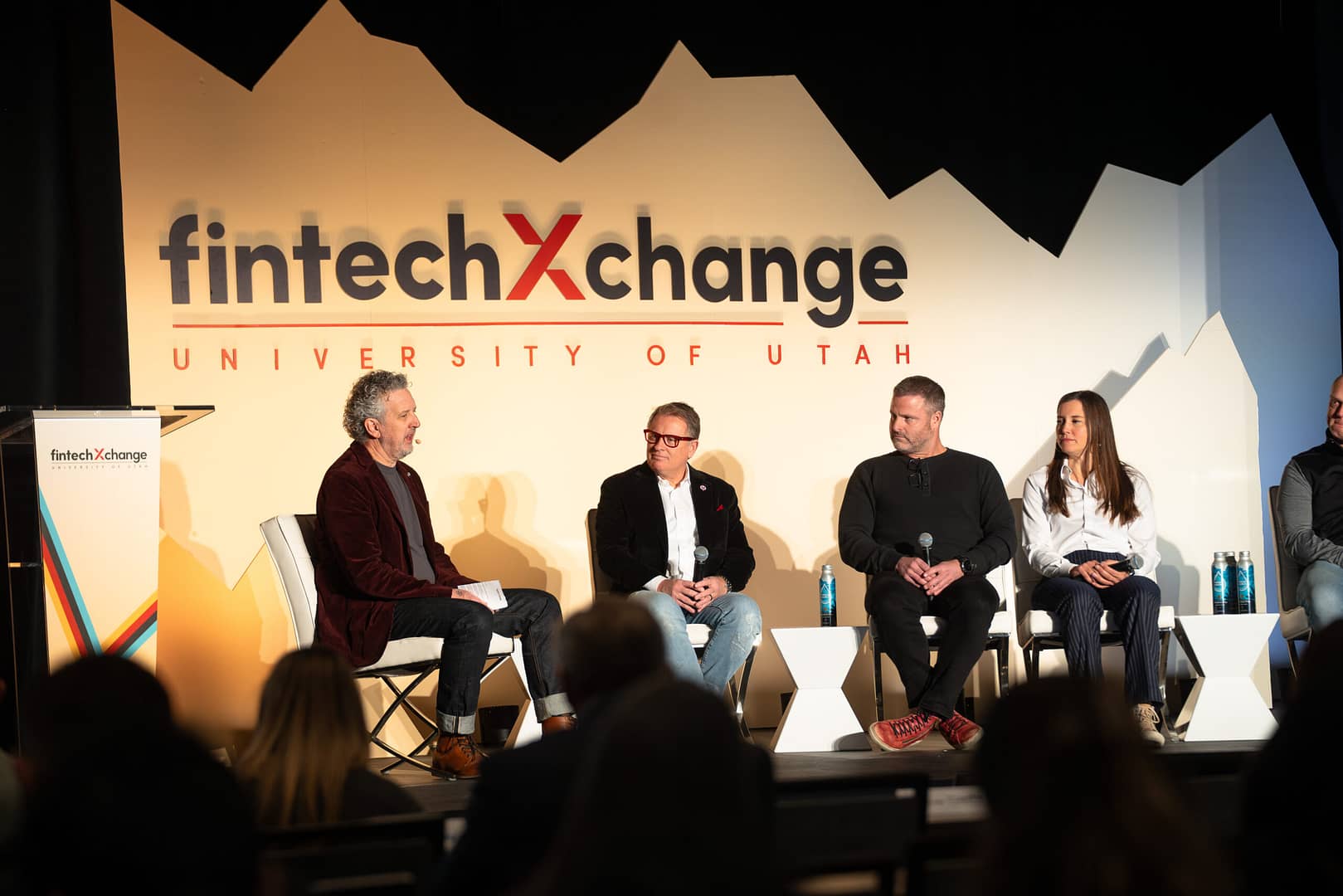In a research report recently released by the Kem C. Gardner Policy Institute and the Stena Center for Financial Technology, a comprehensive study of Utah’s fintech industry and its impact on the state economy finds that Utah is at the forefront of the fintech movement and is rapidly reshaping the future.“The Economic Impacts of Utah’s Fintech Industry” reports that fintech wages are double the average wage in Utah and third highest among all industries in Utah, resulting in over $1 billion in wages and more than $7 billion in economic impact.
The report came in advance of the 2025 Fintech Xchange held in downtown Salt Lake City on Jan. 23, 2025, where more than 30 speakers from across the United States representing industry, education, funding and government joined 400+ attendees including bankers, technologists, faculty, administration and students.
2025 FinTech Xchange ConferenceJan. 23, 2025Photo by Harriet RichardsonUniversity President Taylor Randall participated in the Fintech Hub Loading: What’s Next for Building Fintech in Utah? panel alongside Salt Lake City Mayor Erin Mendenhall, J.P. Morgan Executive Director Brent Alvord and Galieo CEO Derek White to discuss how their collaboration has fostered significant growth in Utah’s financial technology sector.
Panel moderator Ryan Christiansen, executive director of the Stena Center for Financial Technology at the University of Utah, asked the panel to discuss how regulatory frameworks, education initiatives and industry innovations are working together to position Utah as a global fintech hub via a commitment from the University of Utah and other leading research universities to develop a world-class workforce.
When asked about how the university is fostering cross-discipline partnerships to educate Utah’s future leaders, Randall emphasized the importance of industry involvement in higher education. He said, “We have to involve industry and allow them inside the university to help us actually co-create students.” This co-creation model, he suggested, is central to ensuring that students are equipped with the skills and experiences needed to succeed in an ever-evolving job market.
This forward-thinking approach aligns with the rapid technological advancements we’re witnessing. Randall further elaborated on this idea, stating, “We can see the vision of what AI and the internet do, but we’ve got to think about what are the enabling technologies.” Continuing on the key focus of emerging innovations, Randall added, “Technology is always evolving, but it’s those enabling technologies that we’ve got to focus on right now to get to the end vision. It’s those that identify those technologies that are going to win in the next five years.”
As the conversation turned to the future of fintech in Utah, Randall offered a glimpse into the growth of the industry in Salt Lake City. “We hope in the not-too-distant future, you’ll see a massive fintech center in downtown

